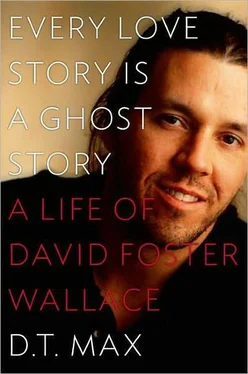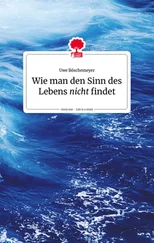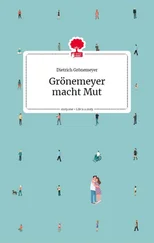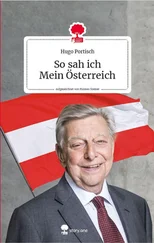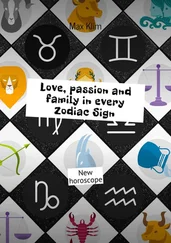Lelchuk was never thrilled with Wallace’s writing, but he recognized his unusual talent and gave him an A-minus. This was the lowest grade Wallace had gotten since the first semester of his freshman year. (He would claim in a later interview that he had to write his stories once, then rewrite them more conventionally to get the grade.) Elsewhere that semester, he got A-pluses in the literary theory class, epistemology, and ethical theories, and an A in American fiction after the Civil War. He was admitted to Phi Beta Kappa and won three academic awards, one for having the highest grades for his first three years.
Back at Amherst in the fall of 1984 for his senior year, Wallace found himself with a new challenge. Costello was gone, having graduated with a double summa, said to be the first student to do so in forty years. He had written two theses, one a novel, the other a study of the New Deal. Ever competitive, Wallace decided he would match his friend. In philosophy he remained interested in the structures of language. Though fiction had taken over his enthusiasms, this highly technical subject still intrigued him and he was aware that once he graduated it would be easier to make a living in a philosophy department than writing fiction. In school he had encountered the work of Richard Taylor, a professor of philosophy at Brown University, who in 1962 had written an elegantly spare paper that argued that the future is predestined. The assertions in Taylor’s “Fatalism” weren’t philosophical in the commonly understood sense but really assertions about the implications of the logic behind language. In their contentions Wallace saw room for a thesis-length response.
Taylor’s argument went like this: Since every statement is by definition either true or false, all statements about the future are also currently either true or false. But if that’s so, then how can our actions have any causal influence over how things turn out? Aren’t we merely acting in accordance with a future that is already set in stone? One example Wallace gave in his paper was of a bomb going off at Amherst. If a terrorist were to set off a nuclear explosion at the school, then there would be a high amount of radiation on campus. So if it is true now that there will be that amount of radiation, then it must follow that a nuclear explosion will go off. Contrarily, if it is false now, then an explosion won’t go off. But since that proposition is right now either true or false, then one or the other result is already fated to occur.
Taylor’s elegant formulation seemed airtight, and if it were correct, then vast, unappealing implications followed. But perhaps even more important to Wallace was that such a simple-seeming line of reasoning — he called it “the famous and infamous Taylor argument” in his thesis — with its suggestion that free will was an illusion, constituted a sort of wormhole in the logic of the universe, and Wallace himself, always struggling with the world as it was, did not like the idea of another wormhole.
He was not the first to try to counter Taylor’s argument. He was impressed with how well it had withstood determined opposition; it would not be easy to overturn. “It’s really ulcer-city,” he wrote Professor Kennick. He chose to combat Taylor on his own linguistic and formal grounds. He asserted that Taylor had confused two slightly different forms of futurity in his paper. There is a difference, Wallace pointed out, between a future that (paradoxically) shapes the present and a future that (commonsensically) is shaped by the present. When, looking back at the past, you say either, “It was the case that X could not happen” or “It cannot be the case that X did happen,” you are actually saying slightly different things. In the first case, you are arguing controversially that events in the future constrained what happened in the past; in the second case, you are merely noting that events in the future were consistent with the past. Taylor, he believed, could only assert that the future was determined by the present, not the other way around.
Wallace wrote his philosophy papers in an informal, conversational tone, almost like offshoots of the bull sessions at Valentine. But analytic philosophy also required formal mathlike notations. Wallace, for all his gifts of mimicry, didn’t know how to do them. He had avoided straight math classes at Amherst, afraid they might lower his grade point average. He was aware how odd this looked: being good at the theory of math without being able to solve math problems. “It seems sort of cheaty,” he had written Washington his junior year, “something like throwing a girl’s skirts over her head and kissing her on the bare stomach before you’ve even introduced yourself or taken her for a malted or anything.” An undergraduate acquaintance, Jamie Rucker, helped him on some of the notations. A junior professor at Hampshire College, Jay Garfield, who was an adviser to the thesis, worked with him on the others. Wallace ended his thesis with a scold that almost sounded out of the mouth of his father: “If Taylor and the fatalists want to force upon us a metaphysical conclusion, they must do metaphysics, not semantics. And this seems entirely appropriate.” The philosophy panel awarded him a summa. He spent the remainder of the semester helping other students with their work. “It was a great year for theses,” Willem DeVries remembers.
That same fall he began his second thesis, a novel, and saw immediately that he preferred it to debunking Taylor. (He would later say that fiction took 97 percent of his brain, philosophy only 50 percent.) He already had a slight reputation on campus as a writer. He had, after consulting with his friends, published “The Planet Trillaphon” in the college literary magazine, the Amherst Review , the semester before. “As far as we know,” the editors wrote for Wallace’s author note, “he has never left this planet.” But some of the undergraduates who read the story wondered. They rightly took its portrait of a boy with depression for the autobiography it partially was. Students would see Wallace and tell their friends there was the guy who had had electroshock treatment. They showed one another an oak crossbeam in the former fraternity house for Chi Phi — the fraternities were banned from campus Wallace’s senior year — and confided knowledgeably that Wallace had tried to hang himself from it. For the first time in his life he was becoming a person of note, his reputation consisting in equal parts of his huge appetite for work and the penumbra of mental illness that hung about him.
Amherst women were becoming interested in him in particular. They admired his nonconformity and his extraordinary intelligence, and they admired how he admired them. Given purpose or courage by being a writer—“Fiction writers as a species tend to be oglers,” he would write in a later essay — he began appraising them in a way he had not dared before. One, he told his friends, “applied make-up skillfully.” Another — pretty to him — had “puke-white skin.” His comment about the pale blue-green eyes of Washington’s first girlfriend was that they “needed some food coloring.” His extreme self-consciousness about his own body was turning outward, into sustained erotic — a favorite word of his — focus. He remembered that his sister’s best friend in high school was a pretty girl with really ugly feet and made the observation into a truth universally acknowledged in the novel he was starting for his thesis. He had relationships, avidly and with guilt. He began what he called his “body count.” “Smell that, Core?” he said to his friend one day in April as they walked on the green in front of the Valentine Dining Hall. “It’s springtime. The smell of cunt in the air.” He took up clove cigarettes, got headaches, took Advil, quit the cigarettes, and the headaches went away. He joked that he was responsible for most of Bayer’s profits. He would try to quit pot, then start it again, never quite admitting that he had. After getting high, he would dig up Washington and persuade him to go to the convenience store to calm his munchies. “Core,” he’d ask his friend, “don’t you want chips?” and get him to buy them for him. He had a work-study job as a telephone operator, working the 1970s-era contraption with its big square buttons. He enjoyed the jumble of voices pouring in, callers asking for directions, the campus police, or information they should already have had — he refused to give out the delivery number for the most popular pizzeria. During quiet times, he would write scenes from the novel.
Читать дальше
